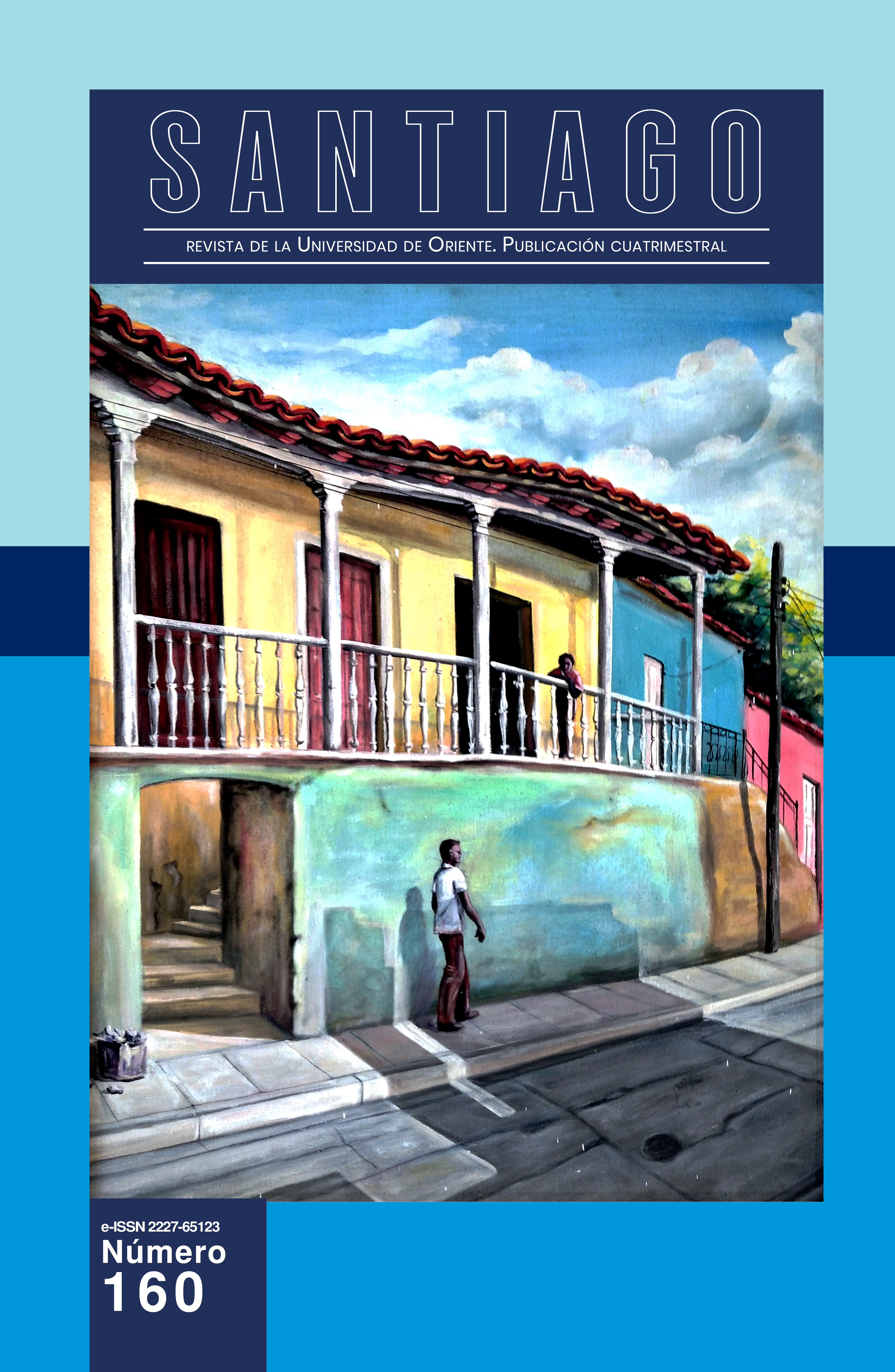Cultural resistance and anti-imperialism in twentieth-century Caribbean poetry
Keywords:
cultural resistance, anti-imperialism, dialectics, poetry, Caribbean.Abstract
The denunciation of imperialist domination and the social ills derived from it developed in various ways. The objective is to argue the cultural resistance-anti-imperialism dialectic in the Caribbean scenario of the first half of the 20th century, taking as reference the poetry of Aimé Césaire, Jacques Roumain and Nicolás Guillén. The logical-historical method, as well as induction and deduction, documentary analysis and critical review together with the transdisciplinary perspective allowed the approach of the problemraised in its internal and external connections. This poetry is under stood as a testimony of a reality marked by imperialist exploitation, racial discrimination and social exclusion, as well as the resolution to transform it in favor of the oppressed, which accounts for the cultural resistance-anti-imperialism dialectic. In this way, it is proposed as a reference foreman cipatory purposes in the region.
References
Césaire, A.(1939). Cuaderno de un retorno al país natal. http://www.arquitecturadelastransferencias.net/images/bibliografia/cesaire_retorno_al_pais_natal.pdf
García Canclini, N. (1989). Culturas Híbridas. Estrategias para entrar y salir de la modernidad. https://monoskop.org/images/7/75/Canclini_Nestor_Garcia_Culturas_hibridas.pdf
Guillén, N. (1990). Nicolás Guillén. Antología Mayor. Editorial Pueblo y Educación
Kozel, A., Grossi, F.y Moroni, D. (coords). (2015).El imaginario antimperialista en América Latina. http://biblioteca.clacso.edu.ar/clacso/gt/20151021093846/imaginario.pdf
Londoño, D. P. (2003). El significado de la resistencia cultural. Herramientas ancestrales en la construcción de la paz y la resistencia civil.http://base.d-p-h.info/en/fiches/premierdph/fiche-premierdph-6479.html
Marchesi, A. (2006). Imaginación política del antiimperialismo: intelectuales y política en el Cono Sur a fines de los sesenta. En Estudios Interdisciplinarios de América latina y el Caribe(Tel Aviv: EIAL) Vol.17.
Martínez Peria, F. F. (2015). Antimperialismo y negritud en el Caribe. En A. Kozel, F. Grossi y D. Moroni. (coords.),El imaginario antimperialista en América Latina.http://biblioteca.clacso.edu.ar/clacso/gt/20151021093846/imaginario.pdf
Mezilas,G. (2008).¿Qué es el indigenismo haitiano?http://www.cialc.unam.mx/cuadamer/textos/ca126-29.pdf
Naranjo Orovio,C., González-Ripoll, Mª D.y Ruiz del Árbol, M. (eds.). (2020). El Caribe: origen del mundo. file:///C:/Users/hiltrudes/Downloads/El_Caribe_Origen_del_mundo_moderno.pdf
Pita González, A. y Marichal Salinas, C. (coords.) (2012).Pensar el antiimperialismo. Ensayos de historia intelectual latinoamericana, 1900-1930. El Colegio de México/Universidad de Colima.
Roumain, J. (2004). Gobernadores del rocío y otros textos (M. Ascencio, trad.) Biblioteca Ayacuchohttps://drugstoremag.es/sucios-negros-jacques-roumain/
Samra, S. A. (2019). La cuestión de la identidad en el poema Cuaderno de retorno al país natal de Aimé Césaire. En N. Calomarde y G. Salto(eds.),El caribe y su literatura y su perspectivas desde el sur.https://blogs.ffyh.unc.edu.ar/congreso-caribe/files/2019/08/El-Caribe-en-sus-literaturas-y-culturas.pdf
Vara, A. (2013). Sangre que se nos va: Naturaleza, literatura y protesta social en América Latina.https://www.researchgate.net/profile/Ana-Vara/publication/277312166_Sangre_que_se_nos_va_Naturaleza_literatura_y_protesta_social_en_America_Latina.pdf
Varela Barraza, H. (1985). Cultura y Resistencia cultural: una lectura política. https://ocs.googleusercontent.com/docs/securesc/coprn91sr2foget31mqr1a0bsjn5vkns/
Downloads
Published
Issue
Section
License
Copyright (c) 2023 Hilrudes Casamayor-Vibet, Maritza Maure-López

This work is licensed under a Creative Commons Attribution-NonCommercial-NoDerivatives 4.0 International License.
CC Reconocimiento-NoComercial-SinObrasDerivadas 4.0



.jpg)

_de_logo.jpg)













